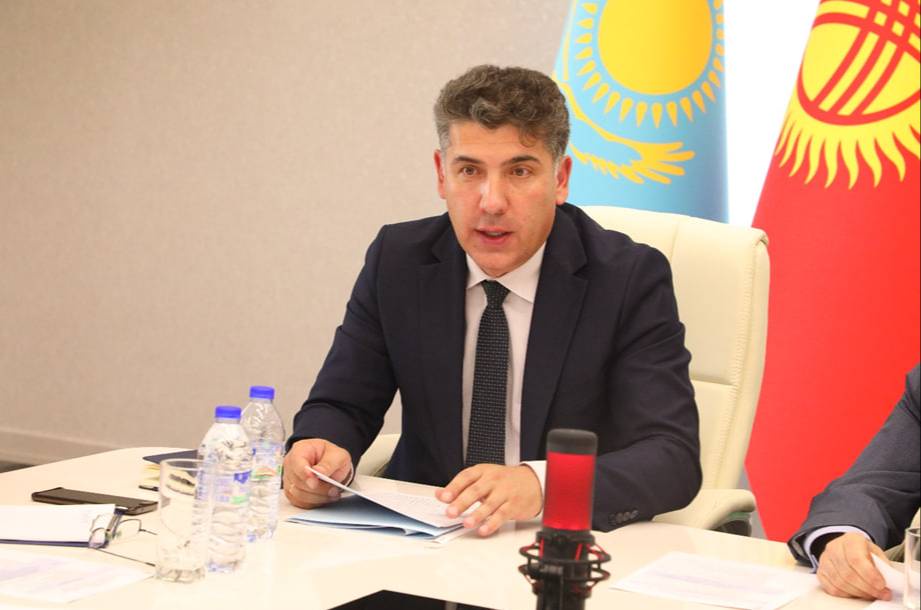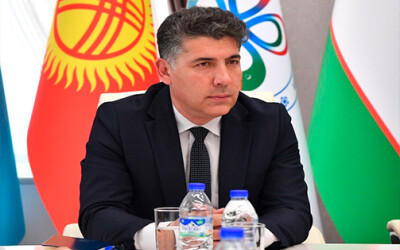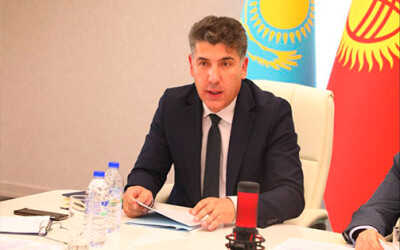Akramjon Nematov: "The SCO should work in the interests of each member of the family of this Organization.

A roundtable on "Samarkand Process: SCO Modernization Prospects" was held in Tashkent today. Speaking at the event, First Deputy Director of the ISRS under the President of the Republic of Uzbekistan Akramjon Nematov outlined priority directions in the context of reforming the SCO activities.
The expert stressed that in order to effectively respond to new threats and challenges there is an objective need to adapt the Organization's activities to the new conditions that, over the years of its existence, have remained largely unchanged.
In this regard, according to him, it is important to define the way the SCO should behave today, the direction in which it should develop and renew itself. The expert believes that in view of the approaching SCO summit in New Delhi, today it is necessary to focus joint efforts on discussing the following issues in the first place.
First. There is a need to improve the SCO's work on inclusive dialogue as a key condition for building mutual trust and mutually beneficial cooperation. In this context, it is important to develop dialogue mechanisms and platforms at all levels, including with the active involvement of observers and partners, to ensure inclusive and comprehensive consideration and resolution of urgent problems and emerging issues.
Second. It is important to increase the effectiveness of mechanisms to ensure the practical implementation of strategic and conceptual documents and decisions made in all spheres. At that, special attention should be paid to such demanded directions as transport and logistics, trade and investment, industrial cooperation and food security.
To this end, it is expedient to focus on development and modernization of the SCO Secretariat ensuring practical cooperation among the nations.
According to Akramjon Nematov, it is necessary to build its capacity to coordinate the interaction of the parties, monitor and implement the agreements reached, to work on strengthening and improving the staff and development of rapid response mechanisms.
Third. It is important to improve the effectiveness of the key decision-making bodies of the SCO - the Council of Heads of State and the Council of Heads of Government - whose decisions have an impact on the further practical implementation of the planned projects and the future contours of the SCO development.
In addition, it was proposed to activate the information and analytical support of the SCO senior bodies by the national research centers of the member states. According to the ISRS representative, this step will allow to considerably enrich the agenda of the meetings, filling the upcoming meetings with relevant and strategic topics.
At the same time, Akramjon Nematov pointed out that the main condition for ensuring security and sustainable development in the vast Eurasian space is mutual support and joint search for compromises on the key issues of the SCO agenda. "In this regard, the Organization should work in the interests of each member of the SCO family," he stressed.
In this context, the expert urged to adhere to the slogan of the President of Uzbekistan that "the SCO is strong only if each of us is strong. "This slogan should serve as an imperative in the context of upcoming conversations about SCO reform," he stressed.
For information: The International Roundtable was organized by the Ministry of Foreign Affairs of the Republic of Uzbekistan in partnership with the Institute for Strategic and Regional Studies under the President of the Republic of Uzbekistan with the assistance of the International Institute for Central Asia. Leaders and experts from leading think tanks of the SCO member states took part in it.
Previous

Uzbekistan and Central Asian states are among the main beneficiaries of the Shanghai Cooperation Organization, First Deputy Director of the ISRS under the President of the Republic of Uzbekistan Akramjon Nematov said at the opening of the roundtable titled "Samarkand Process: SCO Modernization Prospects" in Tashkent.
14.06.2023Next

On June 14 this year, Tashkent hosted a roundtable on "The Samarkand Process: Prospects for SCO Modernization.
14.06.2023





